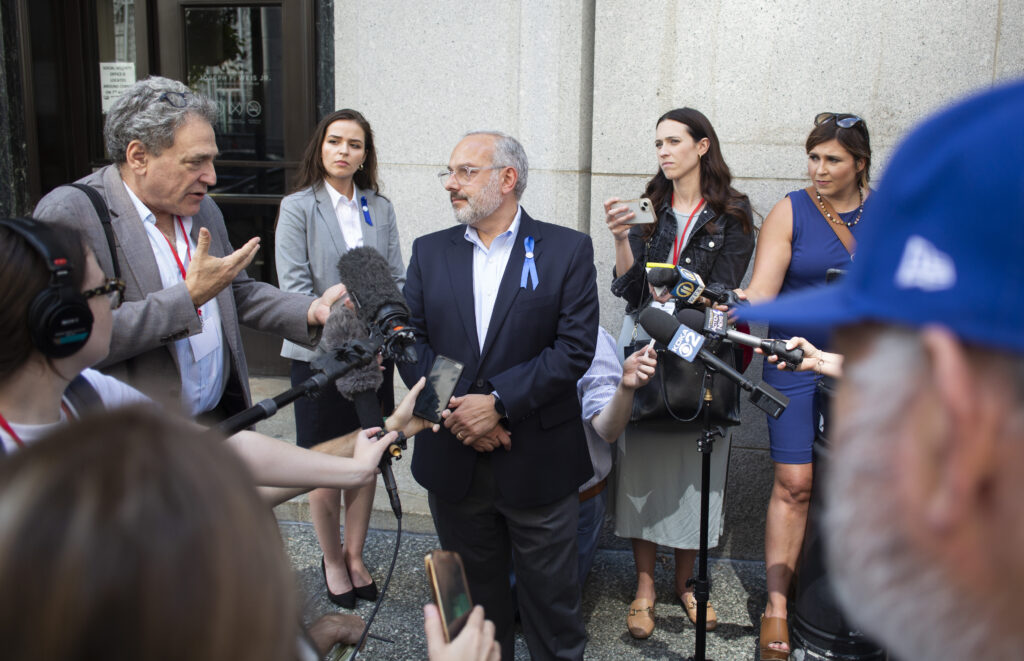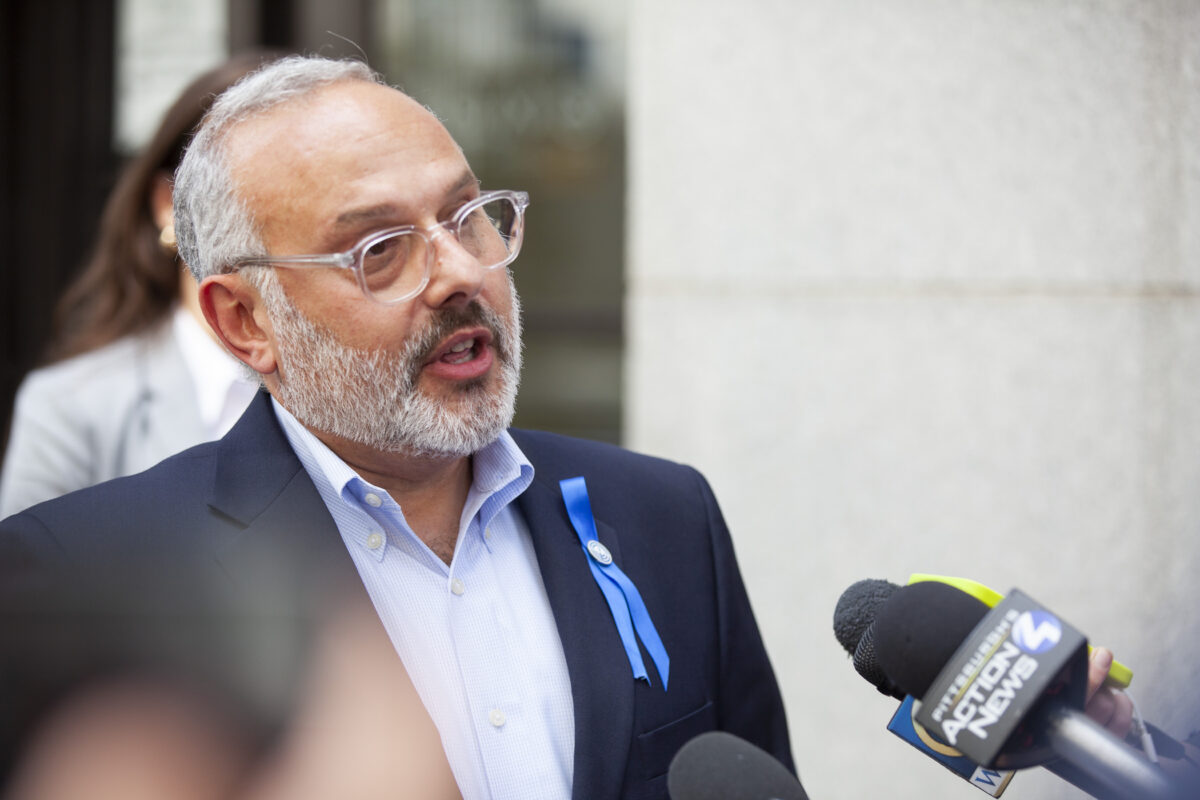Members of Pittsburgh’s Jewish community responded after the jury for the synagogue massacre trial unanimously found the shooter eligible for the death penalty, moving the trial to the third and final phase.
The trial will now proceed into the sentencing phase, where family members of the victims will deliver impact statements about the lives lost and the defense will offer mitigating evidence about the defendant’s life..
On Oct. 27, 2018, Robert Bowers killed 11 worshippers from three congregations in the Tree of Life building — Dor Hadash, New Light and Tree of Life. Those killed were — Joyce Fienberg, 75; Richard Gottfried, 65; Rose Mallinger, 97; Jerry Rabinowitz, 66; David Rosenthal, 54; Cecil Rosenthal, 59; Bernice Simon, 84; Sylvan Simon, 86; Dan Stein, 71; Irving Younger, 69; and Melvin Wax, 88 — at the Tree of Life Synagogue building. Last month, the jury determined that he was guilty on all 63 federal counts, , including 22 capital crimes.
After the jury delivered the verdict, Jewish Federation of Greater Pittsburgh President and CEO Jeffrey Finkelstein gave a statement outside the federal courthouse. He said that he’d just spoken with a few of the victims’ family members.
“I got the sense that they were — not happy or elated, those would be the wrong words — but eager to be able to share their feelings during this next phase,” Finkelstein said.
Maggie Feinstein, 10.27 Healing Partnership director, issued a statement emphasizing support for the victims’ family members as they prepare to speak on behalf of their loved ones.
“They cannot speak for themselves, and so their family members will speak for them. In the next phase of the trial, our justice system will perform its duty to listen to their voices. We support them, and we stand with them,” Feinstein said.
After less than two hours of deliberation, the decision was announced on Thursday morning. The jury determined that the defendant qualified for capital punishment because he was older than 18 at the time of the shooting, that he killed his victims intentionally, and that there were four “aggravating factors” present, including the fact that the victims were particularly vulnerable due to old age or infirmity.
Over the past several weeks, the defense tried to prove that mental health issues such as schizophrenia and epilepsy inhibited the defendant from forming the intent to kill. The prosecution argued that he carefully planned the attack, carrying through on his intention to kill as many Jewish worshippers as possible by firing more than 70 shots.
Clinical psychiatrist Siddhartha Nadkarni and forensic psychologist Richard Rogers, witnesses for the defense, both diagnosed Bowers with schizophrenia. Key prosecution witness and forensic psychiatrist Park Dietz disagreed, testifying that the shooter did not meet the criteria for schizophrenia. His antisemitic beliefs stemmed from ideology, rather than delusions, Dietz said.
“It’s clear that this is hatred of Jews. This is antisemitism. This is not a mental health issue,” Finkelstein said, outside the courthouse.
The New Light Congregation echoed those sentiments in a statement, writing that there is still work to be done to counter the sorts of antisemitic views that motivated the defendant.
“This trial is an important step in drawing a line between speech and action,” the statement read.





